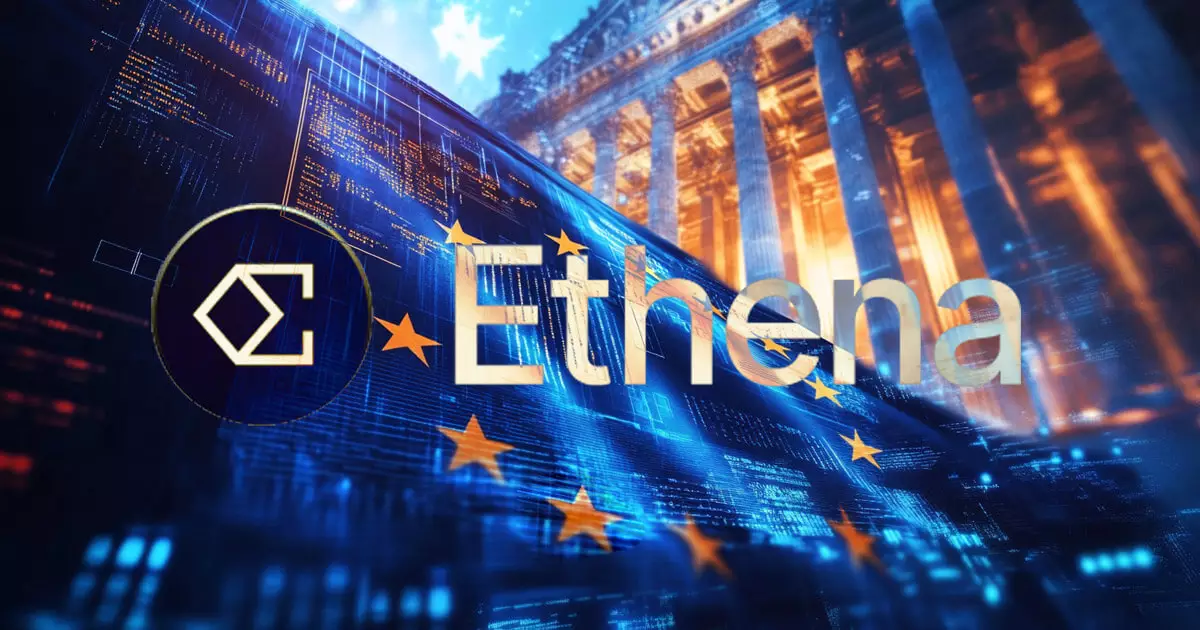In an era characterized by rapid technological innovation and chaos in the crypto-market, regulatory bodies are adopting a vigilant stance. Germany’s Federal Financial Supervisory Authority (BaFin) exemplifies this cautious approach by recently rejecting Ethena Labs’ application to issue asset-referenced tokens. The BaFin’s decision is not merely a response to paperwork deficiencies but indicates a larger, systemic effort to regulate an unpredictable sector that has drawn both massive investment and severe skepticism. In this case, the rejection of Ethena’s sUSDe token shines a spotlight on the myriad issues surrounding the intersection of cryptocurrency and regulatory frameworks that can disturb market stability.
Questionable Organizational Practices
The deficiencies cited by BaFin weren’t simply minor oversights; they pointed to deeper-rooted issues within Ethena’s organizational structure. BaFin flagged serious concerns regarding capital adequacy and asset reserve compliance, indicating a significant lack of transparency and accountability required from any entity attempting to operate in the murky waters of the crypto-space. In a market already notorious for volatility and fraud, BaFin’s strict criteria ensure that the foundations of such financial instruments are robust enough to withstand economic turbulence. Ethena Labs’ shortcomings raise important questions about the preparedness of newer players in this domain and the ethical ramifications of their decisions.
Token Classification as Securities: A Pivotal Shift
One of the most alarming aspects of BaFin’s decision lies in the agency’s suspicion that sUSDe could be classified as a security under German law. This classification could fundamentally alter how investors perceive not only sUSDe but other similar tokens, creating a ripple effect throughout the entire crypto ecosystem. If sUSDe is deemed a security, it would need to comply with stringent regulations regarding transparency, reporting, and investor protection, fundamentally changing the way such tokens operate. With cryptocurrencies merging features from multiple financial products, this case might generate a critical precedent, compelling other jurisdictions to reconsider their stance on similar hybrid financial instruments.
Impact on Future Regulatory Frameworks
The implications of BaFin’s scrutiny extend far beyond Germany’s borders. As the European Union is working on harmonizing regulations through the Markets in Crypto-Assets Regulation (MiCAR), BaFin’s actions might shape how these regulations evolve. Ethena Labs’ ongoing attempt to find regulatory frameworks indicates the trial-and-error nature of navigating the burgeoning and often precarious landscape of digital assets. Still, one cannot help but feel skeptical about whether such exploration yields genuine regulatory compliance or merely serves as a façade to placate authorities while expecting lenient oversight.
Transparency and Investor Protection
Ethereum’s public statement about the rejection is telling; it underscores the company’s willingness to seek alternative regulatory frameworks while denying that the decision affects their liquidity or operations. However, the question remains: how transparent is Ethena really? In an industry that often sees its players lashing out against regulatory constraints, direct communication with stakeholders about such setbacks is vital. The sheer lack of clarity regarding the underlying financial mechanics of the sUSDe token poses risks that could entrap unsuspecting investors if transparency isn’t prioritized. Stakeholders must demand not only compliance but also clearer communication from crypto companies about risks associated with complex token systems.
BaFin’s rejection of Ethena Labs is merely a snapshot of a crucial moment in the financial world, where regulation struggles to keep pace with technology’s rapid evolution. As the ESG (Environmental, Social, and Governance) framework rolls out and public sentiment shifts, it’s imperative that regulatory agencies like BaFin continue to assert their authority to keep innovation in check while upholding consumer trust. In doing so, they not only protect the market but also lay the groundwork for sustainable and ethical growth in the realm of cryptocurrencies.

